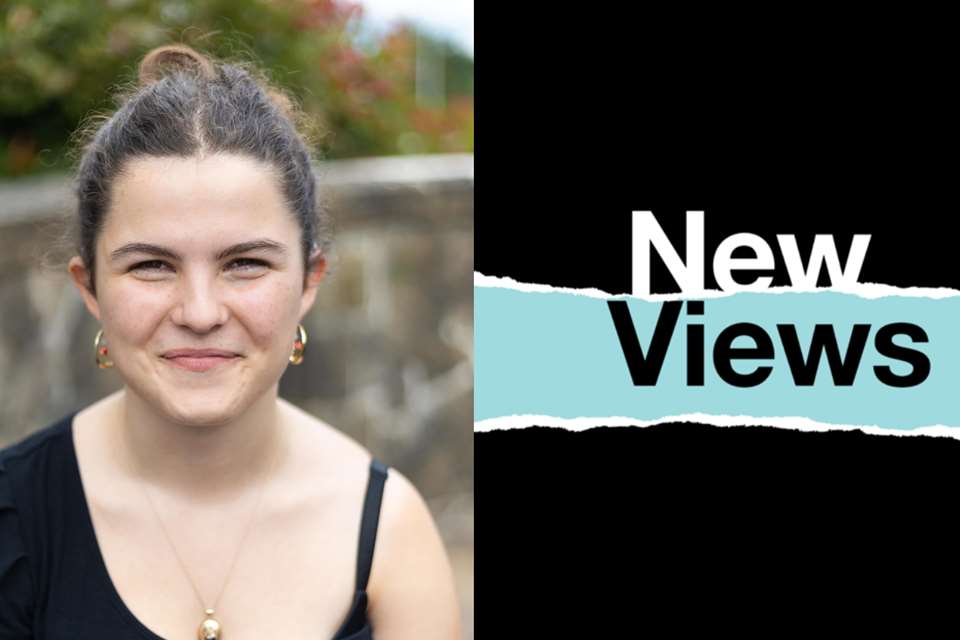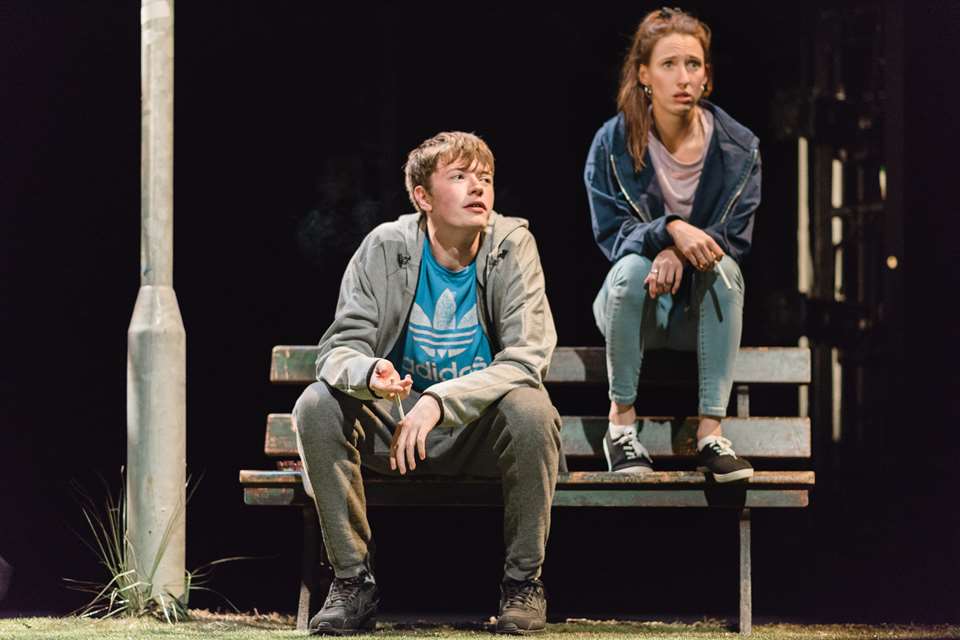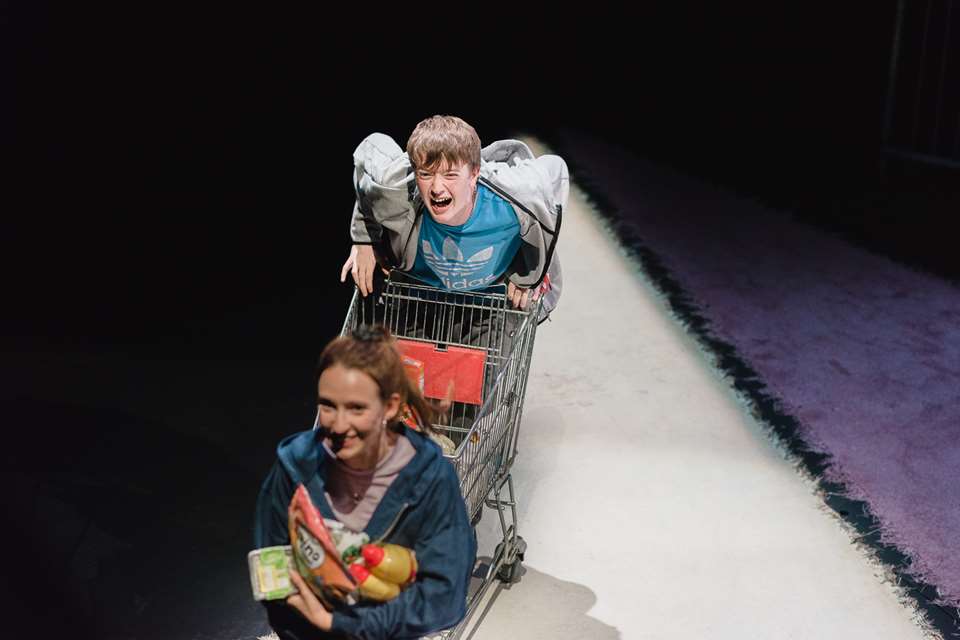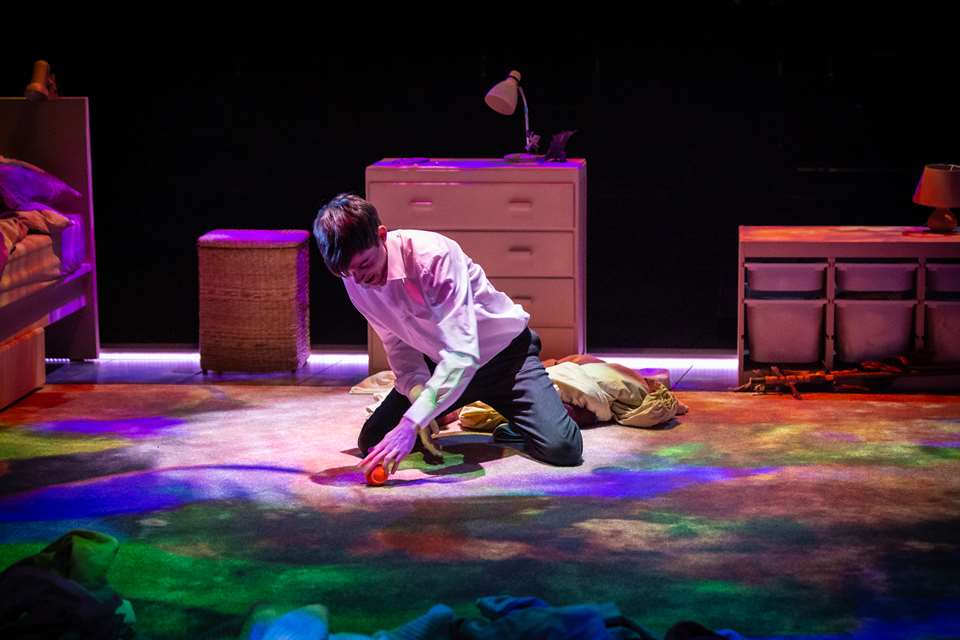Review: Barrier(s) by Eloise Pennycott
Sarah Lambie
Thursday, September 1, 2022
The editor reviews the winning play from this year's New Views competition, Barrier(s) by Eloise Pennycott.
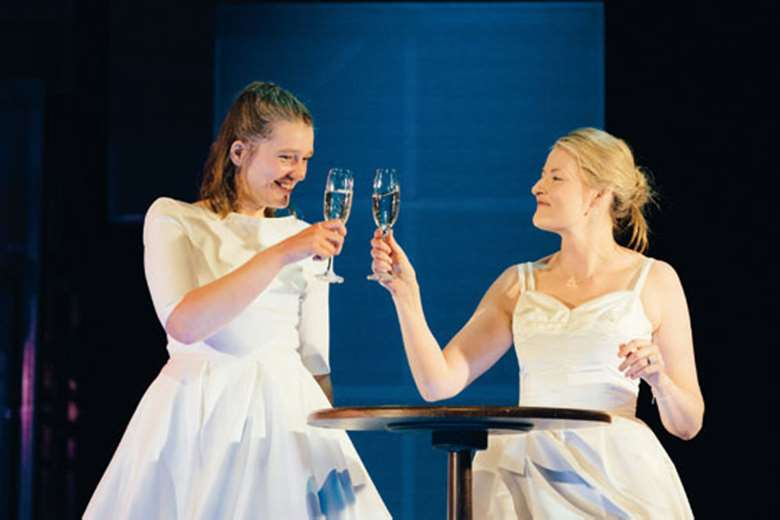
HELEN MURRAY
New Views is the National Theatre's annual playwriting competition for ages 14-19. Over the course of each year, the theatre provides support for teachers to set up in-school writing groups, including an online handbook, a professional development weekend, and visits to both live and screened workshops, as well as two in-school workshops with professional playwrights.
The plays written by young people are judged by a panel of five experts, and this year's winner was chosen from an original crop of more than 400 plays written in 99 schools.
The winning play, Barrier(s), by Eloise Pennycott of Southend High School for Girls was given two professionally staged performances at the Dorfman Theatre in July. It's a twohander: two women meet and fall in love, one is deaf, the other hearing. In the opening scene of the play there is some beautiful observational comedy which also plays on the cringe-factor of a well-meaning hearing person trying to communicate with someone who doesn't speak their language.
In a challenge to the usual norms of bias, it is refreshing to see a play on the National's stage which makes reasonably little concession to the fact that hearing audience members may not understand sign language. While sections of the play were subtitled, others were not, meaning that parts will have been confusing for deaf and hearing people equally. Pennycott thus plays neatly with the expectations of an able audience, and creates a much more equal experience for all.
As the play progresses, it becomes increasingly dystopian–reminiscent of Caryl Churchill in its subtle subversion of an otherwise recognisable world, as the society outside the two women's relationship becomes increasingly distrustful of people who sign. Sign language becomes equated with terrorism, provokes prejudice, acts of violence, and is, ultimately, made illegal.
At this point, however, the lead character, Katie, breaks the fourth wall. The actress doesn't want to tell this story, doesn't want a lot of pity for the poor oppressed deaf person: wants, instead, to highlight how British Sign Language (BSL) has been fully recognised as a language and part of a culture, and that in fact 2022 has been characterised by the enshrining of the rights of BSL. Reality is the opposite of the doom and gloom in the storytelling. The actress (or more truthfully the playwright) does not want us to pity deaf people–we're all equal now, no pity required. The narrative we were following is cut short, but the conclusion of the story becomes suddenly irrelevant in one fell meta-theatrical swoop.
For more information on New Views, visit nationaltheatre.org.uk/learning


